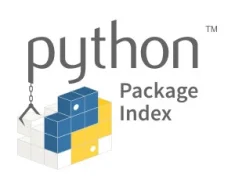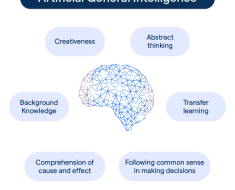Deloitte, the international consulting, financial advising, and risk management company put out a report earlier this month on “the State of Generative AI in the Enterprise,” an attempt to collect sentiment from business leadership across industries. The results showed a surprising level of optimism and confidence coming off a busy year in AI development.
Across the report’s “key findings”, respondents repeatedly stated high expectations for improvements in efficiency and costs in the short to mid-term, and self-reported levels of expertise and interest in artificial technology were very positive.
Strong Emotions
The paper led with a question about the “emotions” leaders felt regarding artificial intelligence technology. At 62%, “excitement” was the overwhelming winner, with “fascination” taking 46% of the responses, and “uncertainty” coming in third with 30%. Perhaps most surprising, 17% of respondents described feeling “trust” for the technology, putting it in the fourth spot. More negative emotions including “anxiety”, “confusion”, “fear”, “exhaustion”, and “anger” each came in at 10% or below.
|
|
|
Reflecting that “excitement” and “trust”, 79% of leaders further expressed that generative AI was likely to “substantially transform” their business within the next three years. But despite this confidence, the vast majority of leaders seem to be focused on tactical implementations such as improved productivity and cost reductions. Less than a third of leaders report looking to AI for improving products, innovative growth, or increased revenue.
Hottest job in corporate America? The executive in charge of AI
Confident Planning
One of the most surprising statistics of the report was regarding the self-assessed level of expertise. Respondents were asked to rank their organization’s expertise with generative AI as very high, high, some, little, or no expertise. A full 44% of respondents stated that their organization had “very high” or “high” levels of expertise. To some extent, this should be expected since the leaders being surveyed were likely to skew toward more experienced users. That being said, the incredibly dynamic and fluctuating nature of generative AI right now should keep confidence in check.
This is especially true when examining responses about preparation and strategy. While the leaders surveyed showed more confidence in their infrastructure and AI strategy, they showed less confidence regarding talent. A full 41% of responses indicated that leaders felt their company staffing was either not prepared or “slightly prepared” for generative AI, and many responded that they were hiring, educating, and/or reskilling workers to utilize generative AI.
In a related topic, AI has definitely made its way into the hiring process – for better or worse. A full 72% of respondents expect AI to change their hiring strategies within the next two years.
Report Foundation
Deloitte ran the survey for 2,835 leaders between October and December of last year. All respondents were senior leadership, including board members, presidents, vice presidents, and director-level staff. More than a dozen countries were represented in the data, including the UK, India, Canada, and Germany. The United States represented the bulk of the responses, at more than 1,200. All responses came from companies with “one or more working implementations of AI being used daily.”
While this is the first such report from Deloitte, the company states in this paper that they expect to continue collecting data, and plan to release quarterly reports on generative AI strategy and adoption moving forward.
Howso brings in new CEO, plans for opportunities in regulation and “explainable” AI
Looking Ahead
One of the stated goals of the report was the desire to understand and anticipate future AI implementation. With an eye toward future reports, this initial “baseline” survey asked a number of questions to help provide a bigger-picture perspective of the challenges companies are facing.
One discussion point is regarding the attempts to identify the ROIs (return on investments) of generative AI — and then figure out how to reinvest the time and money saved. In the same vein, Deloitte sought to understand the balance of experimentation vs. establishing a solid foundation for building future AI services and models. The age-old question, “Should companies be buying or building” is also one relevant to AI models and under consideration by leadership.

The question of responsible AI came up only briefly during the discussion of future strategy, alongside the question of how to address shifts in societal (and presumably, legislative) “guardrails.” However, in the key findings, leaders noted there are far-reaching risks. Counter to most business interests, 78% of the responses indicated that they would like more regulation of AI by governments. And 72% stated that there should be more global collaboration to help ensure responsible AI development. Apparently that sentiment of “trust” only gets leaders so far.






![[2402.09193] (Ir)rationality and Cognitive Biases in Large Language Models [2402.09193] (Ir)rationality and Cognitive Biases in Large Language Models](https://aigumbo.com/wp-content/uploads/2023/12/arxiv-logo-fb-235x190.png)
